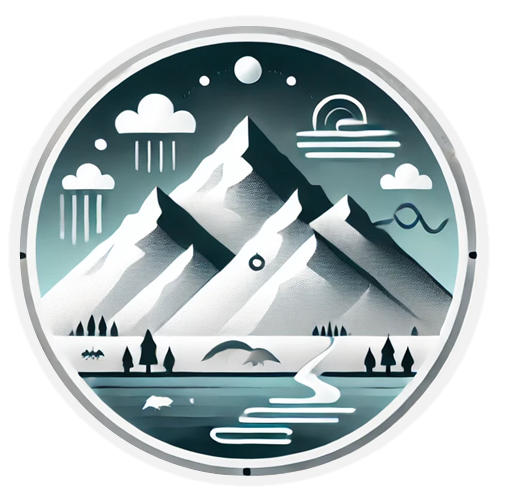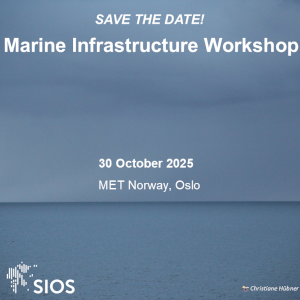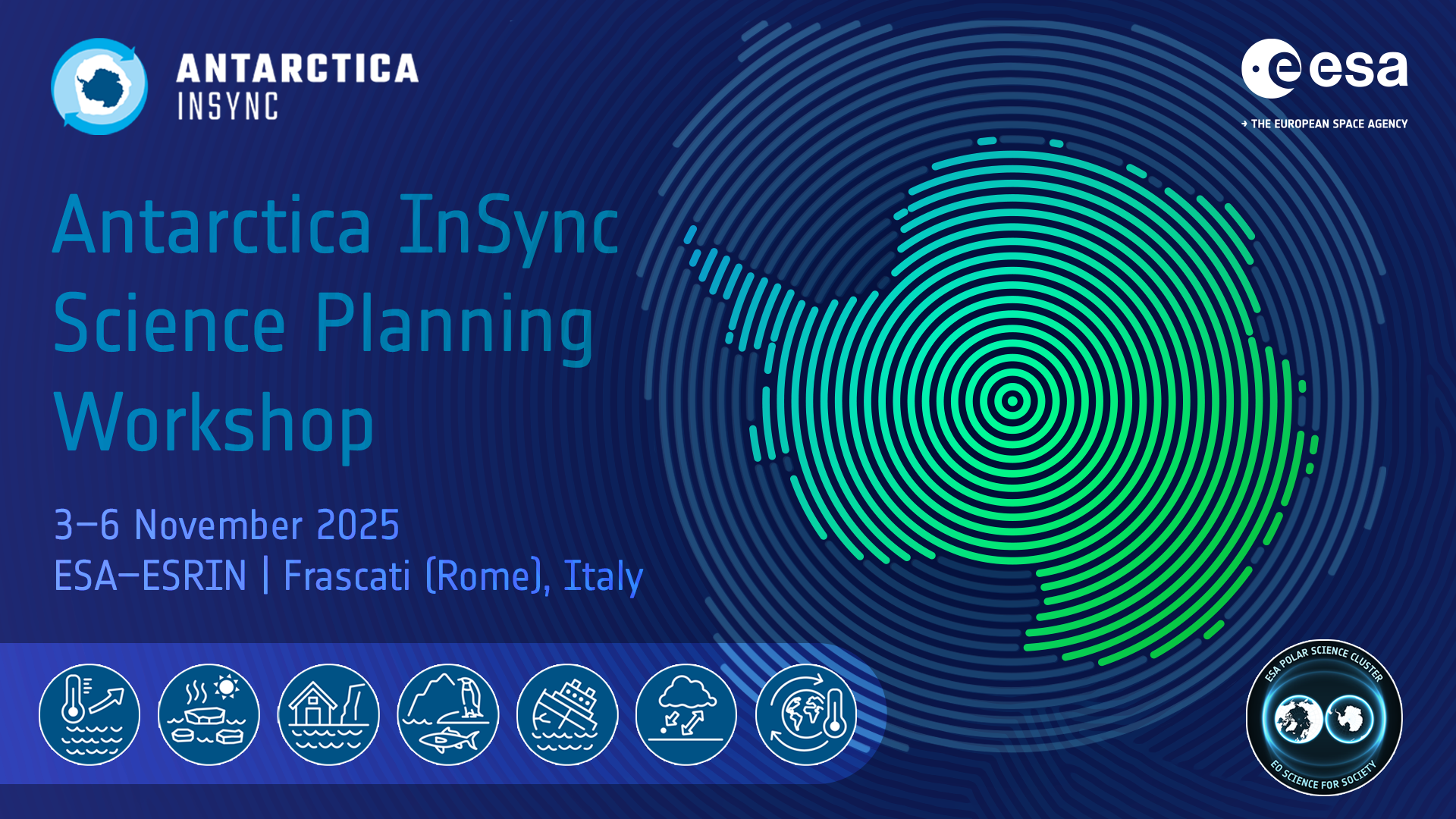Eventi
 The 12th SCAR Open Science Conference, takes place in Oslo, Norway, from 8–19 August 2026. The SCAR Open Science Conferences offer scientists from various disciplines and countries the opportunity to present their work, network and participate actively in SCAR’s scientific activities.
The 12th SCAR Open Science Conference, takes place in Oslo, Norway, from 8–19 August 2026. The SCAR Open Science Conferences offer scientists from various disciplines and countries the opportunity to present their work, network and participate actively in SCAR’s scientific activities.
Members of the international polar community are invitated to submit abstracts. This year’s programme features 50 dynamic sessions across the Physical Sciences, Geosciences, Life Sciences, Humanities and Social Sciences, along with a rich selection of cross-disciplinary themes.
The abstract submission deadline is 28 February 2026 at 23:59 UTC.

Atlantic Plastics 2026 - Third International Symposium on Marine Plastic Pollution Arctic to the Antarctic. The Government of Iceland will host the Third International Symposium at Harpa, Reykjavík Concert Hall and Conference Center, on 20-22 October 2026. The Call for Abstracts is now open.
The deadline for the submission of abstracts is on March 31, with acceptance being notified by May 31.
Early Bird and Student registrations are now open.
For further information visit: Atlantic Plastics 2026 - Home
The UArctic Congress will take place in Tórshavn, Faroe Islands, from May 26 to 29, 2026, at the Arena við Tjarnir. The event is hosted by the University of the Faroe Islands (Setur).
The UArctic Congress is a biennial event that brings together a scientific conference and the main UArctic meetings in a single occasion. With the aim of fostering contacts and strengthening networking, the UArctic Congress welcomes institutional leaders, indigenous representatives, academics, scientists, and students from across the circumpolar North and beyond. The event will also host the Ocean Connectivity Conference.
The Call for Abstract Proposals is now open: Uarctic Congress 2025
Deadline extended: January 15, 2026
L'Arctic Science Summit Week (ASSW) è organizzata ogni anno dall' International Arctic Science Committee (IASC) per offrire opportunità di coordinamento, cooperazione e collaborazione tra le varie organizzazioni scientifiche coinvolte nella ricerca artica. È stata avviata dallo IASC nel 1999 e si è evoluta fino a diventare l’incontro annuale più importante delle organizzazioni di ricerca artica.
Durante il Science Day dell’ASSW 2026, il 29 marzo 2026, ricercatori, detentori di conoscenze indigene e stakeholder artici si riuniranno per condividere i più recenti progressi della ricerca scientifica sull’Artico. Si svolgeranno sessioni tematiche parallele che rifletteranno i cinque gruppi di lavoro dello IASC: Atmosfera, Criosfera, Ambiente Marino, Sociale e Umano, e Terrestre.
SCADENZA PER L’INVIO DEGLI ABSTRACT: 14 novembre 2026 https://assw.info/program/assw-2026-science-day
Dal 3 al 6 novembre 2025 l'ESA presso l'ESRIN ospiterà il workshop di pianificazione scientifica Antarctica InSync. Antarctica InSync è un'iniziativa scientifica coordinata a livello globale istituita per affrontare il cambiamento ambientale su scala panantartica che si sta attualmente verificando nel continente antartico e nell'Oceano Antartico.
L'iniziativa si basa su un quadro di ricerca integrato a livello di sistema che facilita osservazioni sincronizzate e multipiattaforma nei settori atmosferico, oceanico, criosferico e biologico.L'obiettivo principale del workshop è quello di riunire esperti invitati in rappresentanza dei comitati nazionali Antarctica InSync per discutere le priorità scientifiche, allineare metodologie e tempistiche, coordinare la raccolta dei dati e finalizzare il piano scientifico per Antarctica InSync.
Il prossimo 3 e 4 marzo 2026 si svolgerà a Roma, presso la sede Centrale del CNR, l'Arctic Circle Rome Forum – Polar Dialogue, organizzato dal Ministero dell'Università e della Ricerca e dal Consiglio Nazionale delle Ricerche in coordinamento con il Ministero degli Affari Esteri (MAECI), con il coinvolgimento del Ministero della Difesa e del Ministero dell'Ambiente e della Sicurezza Energetica.
Il Forum offre un'opportunità unica per riunire i leader internazionali della ricerca, del mondo accademico, del governo, dell'industria, delle comunità indigene e della società civile. Le discussioni si concentreranno sulle principali trasformazioni in atto nelle regioni Artiche con l'obiettivo di promuovere la collaborazione e il dialogo, estendendo la riflessione all'Antartide e al cosiddetto Terzo Polo.
L'evento sarà caratterizzato da panel organizzati attorno ai temi centrali della scienza, della diplomazia, della sicurezza, dell'istruzione e della ricerca che affronteranno sfide globali condivise come cambiamenti climatici e ambientali, oceani polari, ghiaccio ed ecosistemi, tecnologie emergenti per l'osservazione e il monitoraggio, adattamento ad ambienti estremi, sviluppo sostenibile e resilienza delle comunità, cooperazione internazionale e diplomazia scientifica.
Sono aperte le call per la proposizione di panel - L'Arctic Circle Rome Forum intende promuovere le competenze e le eccellenze italiane negli studi polari, rafforzando il ruolo del Paese come attore internazionale di primo piano in un settore di crescente importanza scientifica, climatica, economica e geopolitica a livello globale.
 Per celebrare l'Anno Internazionale per la Preservazione dei Ghiacciai e l'avvio della Decade di Azione per le Scienze Criosferiche promossa dalle Nazioni Unite, in occasione della Giornata Internazionale della Montagna, il Gruppo di lavoro sulle Montagne del DSSTTA organizza per venerdì 12 dicembre 2025 presso la sede centrale del CNR una Giornata sulla criosfera, volta a presentare le attività di ricerca del CNR sull'argomento, aperta a tutta la comunità scientifica.
Per celebrare l'Anno Internazionale per la Preservazione dei Ghiacciai e l'avvio della Decade di Azione per le Scienze Criosferiche promossa dalle Nazioni Unite, in occasione della Giornata Internazionale della Montagna, il Gruppo di lavoro sulle Montagne del DSSTTA organizza per venerdì 12 dicembre 2025 presso la sede centrale del CNR una Giornata sulla criosfera, volta a presentare le attività di ricerca del CNR sull'argomento, aperta a tutta la comunità scientifica.
Le attività e la progettualità in corso sulla Criosfera a livello nazionale saranno declinate con contributi riferiti a una delle sessioni in cui si articolerà la giornata:
- La criosfera come indicatore climatico
- Criosfera e risorsa idrica
- Criosfera come fattore di rischio
 Svalbard Science Conference 2025 - Svalbard as an Arctic hotspot for climate change and international cooperation. Conference 28-29 October 2025 at Quality Hotel Expo, Fornebu (Oslo).
Svalbard Science Conference 2025 - Svalbard as an Arctic hotspot for climate change and international cooperation. Conference 28-29 October 2025 at Quality Hotel Expo, Fornebu (Oslo).
The Svalbard Science Conference – the only conference dedicated to Svalbard research – is a bi-annual conference arranged by the Svalbard Science Forum and the Research Council of Norway. This year's theme, Svalbard as an Arctic hotspot for climate change and international cooperation, underscores the critical importance of Svalbard research in understanding and addressing global climate challenges.
The conference brings together researchers at all career stages, research managers, policymakers and other stakeholders of Svalbard research. The aim is to build and strengthen multi-generational, interdisciplinary and international collaboration. Over the course of the conference days, there will be sessions covering all important aspects of Svalbard research.
 Early warning of the 5th SIOS Marine Infrastructure Workshop!
Early warning of the 5th SIOS Marine Infrastructure Workshop!
The next SIOS Marine Infrastructure Workshop will be held in hybrid format at the Norwegian Meteorological Institute on 30th October this year. This a continuation of a popular series of SIOS workshops on marine infrastructure that began in 2020, and it offers the opportunity to connect with scientists working in the marine realm of Svalbard and learn more about Svalbard’s marine infrastructure.
 Ministero dell'Universita e Ricerca
Ministero dell'Universita e Ricerca
Programma Ricerche Artico
Programma Nazionale di Ricerca in Antartide
 Ministero degli Affari Esteri e della Cooperazione Internazionale
Ministero degli Affari Esteri e della Cooperazione Internazionale
L'Italia e l’Artico
L’Italia e l’Antartide
CNR-ISP
National Research Council
Institute of Polar Sciences
c/o Scientific Campus - Ca' Foscari University Venice - Via Torino, 155 - 30172 VENEZIA MESTRE (VE)
Phone: +39 041 2348547 - E-mail: protocollo.isp AT pec.cnr.it
Fax: +39 041 2348 549 - Codice Fiscale: 80054330586 - P.I.:02118311006
Unless otherwise indicated, the content of this site is licensed : Attribution Non Commercial Share Alike 4.0 International (CC BY-NC-SA 4.0)
Privacy policy e Cookie policy - Transparent administration (CNR)












